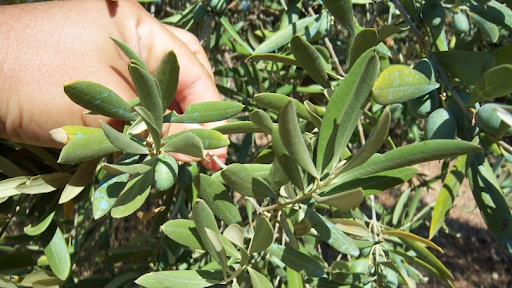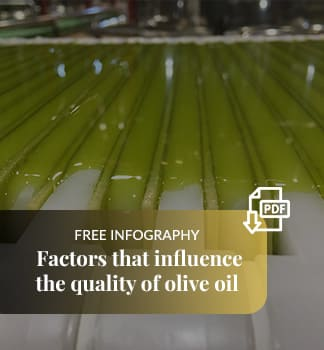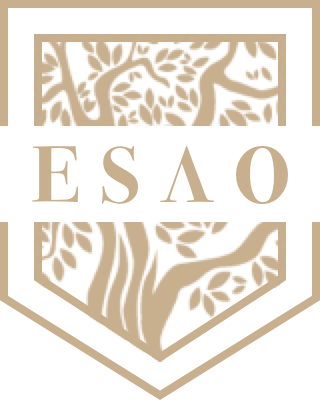Listen to this article
If you are thinking of having an olive oil related business, or you already have one, the first thing you have to do is know all the idiosyncrasies of this sector since it is a sector full of particularities where many agents come into play throughout the value chain and this makes it especially complex.
Specific training in olive oil is undoubtedly a condition that you must take into account when developing your business model, whether you have already started it or not.
If you really want to dedicate yourself to selling olive oil in a professional way and you want your business to be profitable, that is to say that it is not a hobby and that it generates profits, you have to really become an expert in olive oil and little by little to become your own consultant.
In all the presentations that ESAO offers, the first slide presented is the one with the natural route that anyone who wants to embark on an olive-growing business has to do. The first step of this journey is training, the second step is improvement and the third step is growth.

Training path
Indeed, the first thing you have to do is train yourself, to know what exactly the olive sector consists of and what it means to sell olive oil, everything that is involved in this decision.
Sometimes customers come wanting to launch an olive oil brand with the media release already organized and they realize that the quality of their olive oil is not optimal. Some other customers go straight into buying their packaging bottles without even having carried out a market study.
On countless occasions, when someone wants to start in the olive oil industry and in selling olive oil, they have a clear brand and an brand image and yet they have not consulted with an olive oil marketing expert, nor they have a study of the market which they intend to sell.
All these examples lead to decisions with both financial and personal high cost. We are seeing how on many occasions, we begin by wanting to achieve the third and last step that would be growth, without wanting to go through step one and two, since we think we have it under control, and yet it is not like that.
Training is undoubtedly essential for all those who work in an olive oil business, whether you are the business owner, or for the entire team that collaborates in your company.
The natural order that it would be convenient to follow in order to make the most of your training would be to begin with Tasting in the first place.
Olive Oil Tasting
There is no doubt that the first thing you have to know is what you are working with. There are different qualities of virgin olive oil and it is important to know at all times what are you talking about and are you working with.
You do not have to be an expert in tasting, because you can rely on the olive oil sommeliers and experts, but you do have to have some notions that will allow you to understand and differentiate the various qualities and defects in olive oil.
When you want to sell or buy olive oil you have to know what this means specifically.
ESAO oil tasting session. ESAO Image Bank
Elaboration
Secondly, you have to train in elaboration.
Training in olive oil production is important if you are going to be part of the olive oil sector, whether you want to be a Master Olive Oil Consultant or if you want to be part of the sector by selling or buying olive oil.
Knowing the production process will help you to know, for example, the difference between some olive oil mills and others or to differentiate one cooperative from another. Knowing the production process as well as differentiating some processes from others will allow you to make decisions in a more conscious way.
It will also help you learn more about the defects and to understand the tasting in a better way. You will know if the production process with which you work is correct or if you can improve it and be more competitive in this way.
As in Tasting, it is not about being an expert in production but having the basic and fundamental notions that help you understand different qualities and know how to make virgin olive oil of the best possible quality.
ESAO students in oil mill teacher training. ESAO Image Bank
Olive Grove Management
In third place, you have to know about the Olive Grove and its management.
Knowing about different types of olive groves, different planting densities, pros and cons of each of them, knowing the ideal conditions for an olive grove and knowing how to improve the production of olive trees will help you to delve into the olive oil industry.
Knowing the different varieties and how each of them behaves is important to round off your knowledge. Knowing sensory and physicochemical analysis will help you to choose wisely which olive trees to plant or which olive grove to buy or what virgin olive oil to buy.
If you have an olive grove there is no doubt that training and knowledge on the olive grove management will allow you to have a healthy and productive olive grove, with a higher quality in the olive oil after the olive is harvested and processed.

Olive tree leaves. ESAO Image bank
Commercialization
You have to know the markets. Knowing who you are going to sell to is the basis for knowing what your product and company should be like. It is not the same to sell to an American market than to an Asian market for example.
Both the name of the virgin olive oil that I am going to sell and the packaging that I have to choose as well as the distribution that I will need will depend on the market to which I am directed.
It is common for emotions to be above reason and because of this we can make mistakes and pay a high cost in our business or project.
That is why investment in training must be the first link before moving to investment decisions made without previously having a global knowledge from all angles as a whole.
ESAO students in AOV Export and Commercialization training. ESAO Image Bank
Conclusion
We have seen 4 fundamental areas, in which you have to train to help your olive oil business, however there are other areas, secondary, but no less important in which you will also train, such as gastronomy, oleotourism or the mechanics of the oil mill.
Training helps you in your olive oil business and, above all, it can save you a significant part of your budget by minimizing the wrong decisions made due to lack of specific training in the olive oil sector.
.png)



-2.jpg?width=600&name=Blog%20Banner%20(1)-2.jpg)
.jpg?width=600&name=foto%20master%20consultor%20arbol%20(4).jpg)

